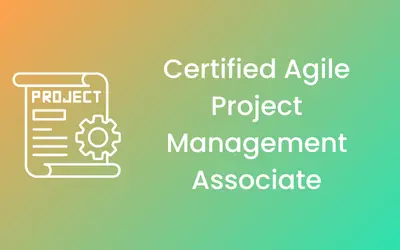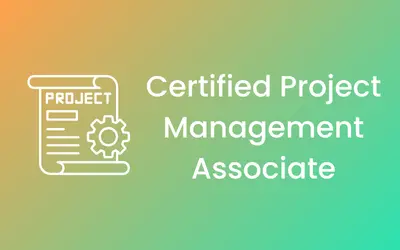Certified Agile Project Management Professional
SKF-PMF-816
-

-
(360 Reviews)
- Career: With experience in choosing agile methods to increase project efficiency and adaptability, the author is a Certified Agile Project Management Associate.
- Skills: skilled in using both of these frameworks and highly capable of putting agile concepts to use in improving team productivity and project results.
- Internship: completed a one-month unpaid internship helping with run planning and execution along the way to help successfully deliver a significant agile project.










